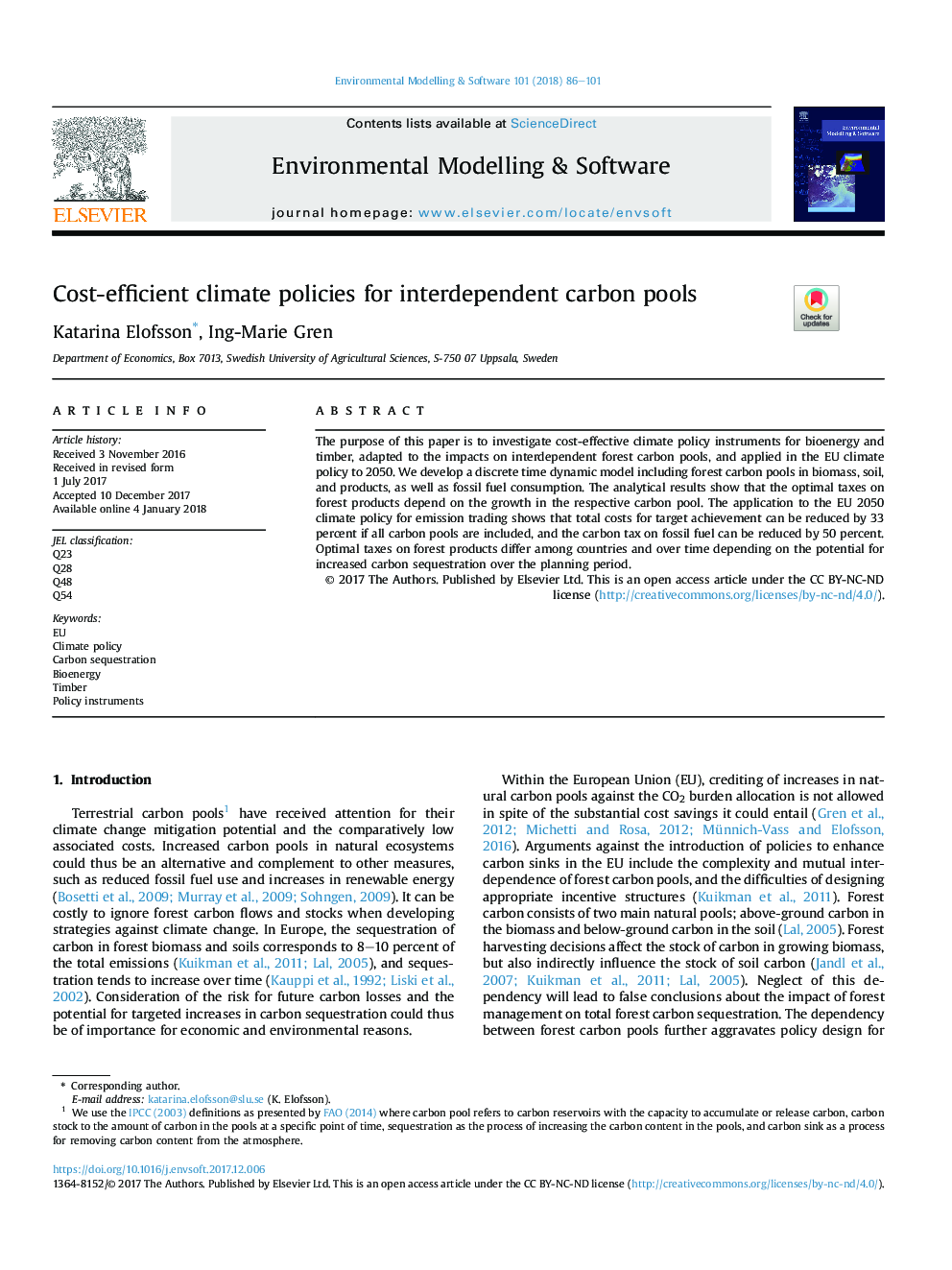| Article ID | Journal | Published Year | Pages | File Type |
|---|---|---|---|---|
| 6962177 | Environmental Modelling & Software | 2018 | 16 Pages |
Abstract
The purpose of this paper is to investigate cost-effective climate policy instruments for bioenergy and timber, adapted to the impacts on interdependent forest carbon pools, and applied in the EU climate policy to 2050. We develop a discrete time dynamic model including forest carbon pools in biomass, soil, and products, as well as fossil fuel consumption. The analytical results show that the optimal taxes on forest products depend on the growth in the respective carbon pool. The application to the EU 2050 climate policy for emission trading shows that total costs for target achievement can be reduced by 33 percent if all carbon pools are included, and the carbon tax on fossil fuel can be reduced by 50 percent. Optimal taxes on forest products differ among countries and over time depending on the potential for increased carbon sequestration over the planning period.
Related Topics
Physical Sciences and Engineering
Computer Science
Software
Authors
Katarina Elofsson, Ing-Marie Gren,
